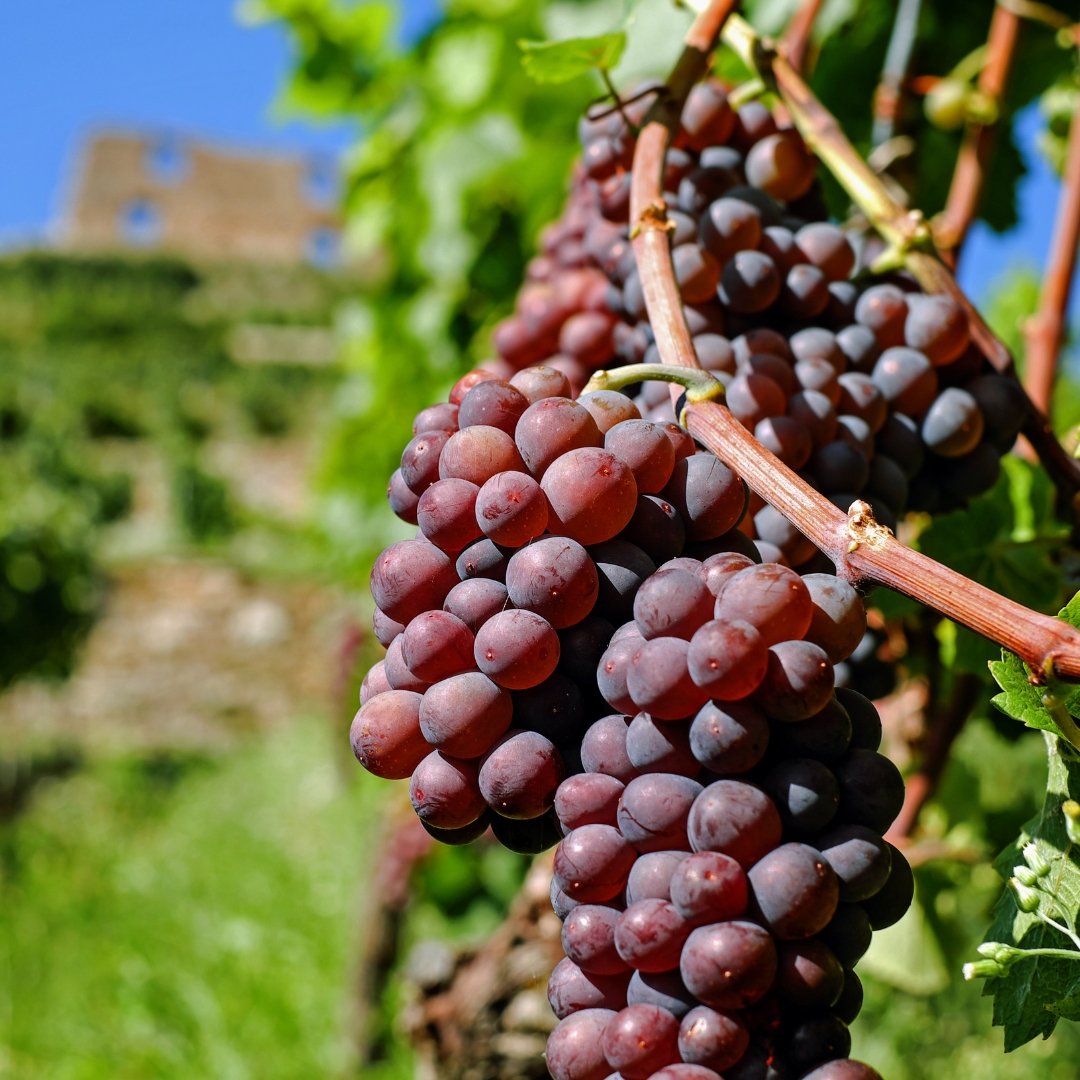Organic Red Wine: The W&S Guide
W&S Health and Wellness Editor
SHARE ON:
What is Organic Red Wine?
Calling all wine enthusiasts! Look, when it comes to health, wellness, and conscious living, we don’t think not having treats is the way to go. So today, let's explore the wonderful world of organic red wine. If you appreciate a glass of wine that aligns with your commitment to conscious living, then you're in for a treat. Organic red wine goes beyond the average vino, incorporating sustainable practices and a deep respect for the environment. So, let's uncork the knowledge and delve into what makes organic red wine so unique.
Organic red wine is crafted through a meticulous process that prioritizes organic farming practices from vine to bottle. Unlike conventional wines, which may rely on synthetic pesticides, herbicides, and fertilizers, organic winemakers choose to nurture their vines using natural and eco-friendly methods. This dedication to organic farming not only benefits the grapes but also helps to protect the surrounding ecosystem.
What sets organic red wine apart is the absence of genetically modified organisms (GMOs) in the winemaking process. Organic winemakers adhere to strict regulations, ensuring that their wines are free from any genetically modified ingredients. This means that every sip of organic red wine allows you to enjoy the true essence of the grape without any genetically modified interference.
Additionally, organic red wine has lower sulfite levels compared to conventional wines. While sulfites occur naturally in the winemaking process, organic winemakers strictly limit the addition of sulfites to their wines. This can be beneficial for those who may be sensitive to sulfites or prefer wines with minimal added sulfites.
Wondering why you’re seeing ads? Check out our Disclosure Policy.
How Organic Red Wine Gets Certified
In the United States, organic red wine can be certified as organic through the U.S. Department of Agriculture (USDA) National Organic Program (NOP). The NOP sets the standards and regulations for organic agricultural products, including wine.
To obtain organic certification for red wine, vineyards and wineries must follow specific guidelines throughout the grape-growing and winemaking process. Here are the key steps involved in certifying red wine as organic:
Organic Vineyard Management: The vineyard must be managed according to organic practices for a minimum of three years before the grapes can be used for organic wine production. This involves avoiding the use of synthetic pesticides, herbicides, and fertilizers. Instead, organic alternatives such as compost, cover crops, and natural pest control methods are used.
Organic Grapes: The grapes used to make the red wine must be certified organic. This means they must be grown in compliance with organic farming practices, including the use of organic-approved fertilizers and pest control methods.
Organic Winemaking: During the winemaking process, organic red wine producers must adhere to specific guidelines. These guidelines prohibit the use of synthetic additives, such as sulfites, artificial colors, or flavors. The use of organic yeast and organic-approved fining agents is required. The winemaking facility itself must also meet certain standards to prevent contamination of the wine with non-organic substances.
Documentation and Record-Keeping: Organic wine producers must maintain detailed records and documentation to demonstrate compliance with organic standards. This includes records of vineyard management practices, grape sourcing, and winemaking processes.
Third-Party Certification: To obtain organic certification, vineyards and wineries must undergo an inspection and certification process by an accredited third-party certifying agent. These agents verify that the vineyard and winemaking operations meet the USDA organic standards. They review records, conduct on-site inspections, and may take samples for testing.
What are the Health Benefits Organic Red Wine?
Sustainability is at the core of organic red wine production. Organic vineyards prioritize ecological balance, using organic farming practices that promote biodiversity and protect the surrounding ecosystems. By eschewing synthetic pesticides, herbicides, and fertilizers, organic winemakers minimize harm to the environment, preserve soil health, and promote the long-term sustainability of the vineyards.
When it comes to our health, organic red wine offers distinct advantages. By eliminating the use of synthetic chemicals, it ensures that our glasses are free from harmful residues that can be found in conventionally produced wines. This reduces our exposure to potentially toxic substances, supporting our overall well-being.
Organic red wine is also known for its lower sulfite levels. Sulfites are naturally occurring compounds in wine that can cause allergic reactions and sensitivities in some individuals. Organic winemakers carefully manage and limit sulfite levels in their wines, making them a preferred choice for those seeking a lower sulfite intake or who may have sulfite sensitivities.
The absence of synthetic chemicals in organic red wine means that we can fully embrace the pure expression of the grape's natural flavors. Organic farming practices promote healthier vines and allow them to thrive, resulting in grapes that embody the unique characteristics of their terroir. The result is wines that are rich, complex, and deeply reflective of their origins.
Scientific research suggests that organic red wine may provide additional health benefits due to its higher levels of antioxidants. These powerful compounds, such as resveratrol, are known for their potential positive effects on heart health, inflammation reduction, and even anti-aging properties. By choosing organic red wine, we can enjoy the potential health advantages that these antioxidants may offer.
By embracing organic red wine, we actively support sustainable agricultural practices and contribute to the preservation of our environment. We also make a conscious choice to prioritize our health and well-being by selecting a wine that is free from synthetic chemicals and potentially harmful residues.
Wondering why you’re seeing ads? Check out our Disclosure Policy.
Organic Red Wine Pairings
Pairing the perfect food with organic red wine can elevate the dining experience to new heights, unlocking a world of flavors and harmonies. Let's explore a range of culinary delights and discover the art of pairing organic red wine with various food groups, from savory dishes to delectable desserts.
Rich and Savory: Indulge in the deep flavors of a juicy steak or a flavorful mushroom risotto. The robust tannins and complex fruit notes of organic red wine complement the richness and intensity of these dishes. For meat lovers, a perfectly grilled rib-eye or a tender lamb chop can be beautifully enhanced by a full-bodied red like a Cabernet Sauvignon or a Syrah. For vegetarian options, pair the earthy flavors of mushrooms and risotto with a medium-bodied organic Pinot Noir or a Merlot for a delightful combination.
Hearty and Spicy: Embrace the warmth and spice of dishes like a hearty chili or a bold curry. The fruit-forward character and balanced acidity of organic red wine can harmonize with the heat and complexity of these flavors. Consider pairing a spicy chili with a Zinfandel or a Malbec, allowing the wine's bold flavors to complement the smoky and spicy notes in the dish. For a curry with rich aromatic spices, opt for a Grenache or a Shiraz to match the intensity and enhance the overall experience.
Cheeses and Charcuterie: Create a tantalizing cheese and charcuterie board featuring a variety of flavors and textures. The diverse range of organic red wines can beautifully complement an assortment of cheeses, from creamy brie to aged gouda. For soft and mild cheeses, such as goat cheese or Camembert, opt for a lighter-bodied red like a Beaujolais or a Pinot Noir. For more robust cheeses like aged cheddar or blue cheese, consider a full-bodied organic red like a Bordeaux blend or a Cabernet Franc.
Decadent Desserts: Don't forget the sweet endings! Explore the world of dessert pairings by pairing organic red wine with chocolate, berry tarts, or caramelized desserts. Opt for a dessert red wine, such as a Port or a late-harvest Zinfandel, to complement the richness and sweetness of chocolate-based desserts. For fruity desserts like berry tarts, try a lighter-bodied red like a Sangiovese or a Grenache to balance the flavors and enhance the fruity notes.
In conclusion, the world of organic red wine pairings is a delightful adventure that brings together the pleasures of food and wine. By embracing the vibrant flavors and sustainable practices of organic red wine, we can elevate our dining experiences while supporting environmentally conscious vineyards. So, whether you're enjoying a savory meal, savoring a cheese platter, or indulging in a decadent dessert, let organic red wine be your trusted companion, adding depth and harmony to each bite. Cheers to the joys of organic red wine and the wonderful moments it brings to our tables!
Also, feel free to check out some of our curated conscious living and well-being resources:
Wondering why you’re seeing ads? Check out our Disclosure Policy.












